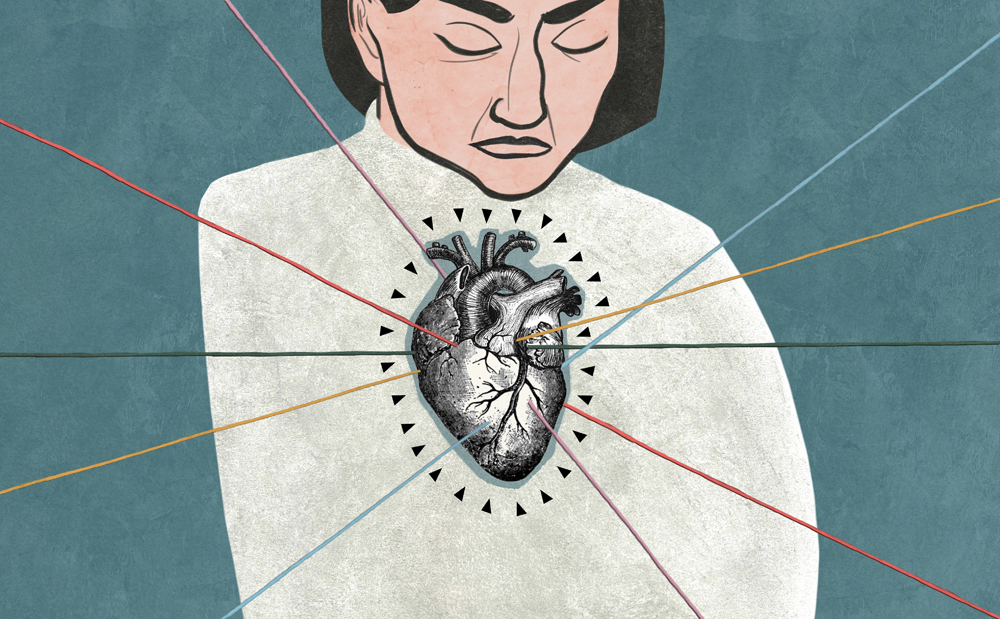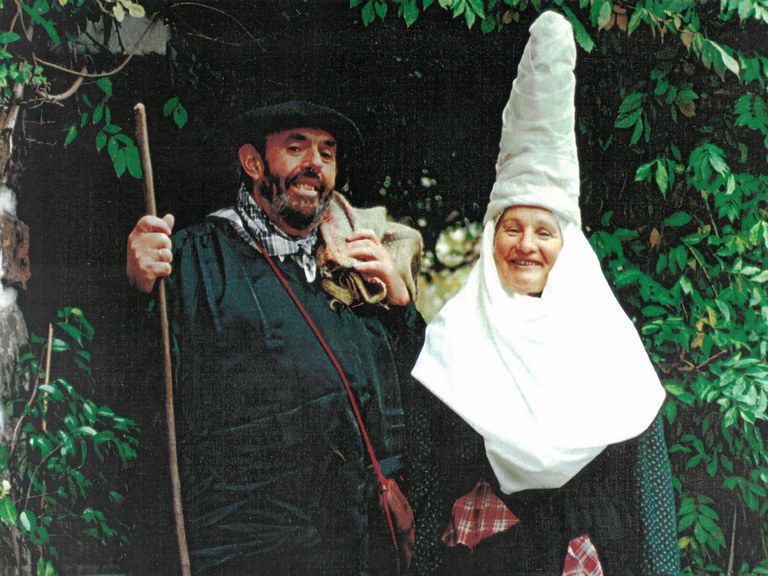Pains and dangers behind pruning
- We published the report Polimaitasuna, showing the different ways of understanding and practicing affective sexual relations. Although we focus on joys, we also emphasize the need to talk about pain and dangers, and the result is this second article dedicated to polymericity. “It is not only the system that is being called into question, but the inconveniences are also being jeopardised,” the interlocutors warned us.

As you will recall in the previous report, we have spoken with six interlocutors on the subject: Sara, Mikel, Estitxu, Eguzki, Jesus (we changed the names) and Elena Scaratti. We have asked them to reveal the major sufferings that they and their colleagues have felt. “Jealousy, the fear of being alone, the loss of that feeling of special when someone enters the relationship,” says Estitxu. Sara puts her and her two colleagues on the table: “In my case, the greatest pain is undoubtedly the fault. Because you're causing pain, which is the personal key between Arkaitz and Maite and raised a new form of relationship to three. Arkaitz speaks of fear: “When introducing the new element, where do I stay? If you like, you're going to leave me." As for Maite's great pain, it was this: “I am the last to enter, plus the lampstand, I am the last piece and the easiest to erase.” Even Eguzki has put his guilt on the front line. In the experience of Mikel, Elena and Jesus, suffering has had little presence, in any case they refer to jealousy. “I had them at first, sixteen years ago. Since then, for the first time about two months ago,” says Mikel; Jesus does not think of his own, but of those of a relationship partner; Elena, her own, sometimes very alive.
One of the reasons for defending forms of relationship beyond the monogamous system is the deactivation of hierarchies and logics of competition between relationships – people –: partners and friends; nuclear family and neighborhoods; “we” and “the others”. But it's not an easy task, because monogamous logic is a conception of the world that can adopt innumerable expressions, which we have naturalized.
In this sense, Sara has highlighted the classic suffering that occurs when one is a couple and is attracted to another: “If I want this news, don’t the other? Am I not well with the other?” The position of each in the network and in the relationship can also generate hierarchies or power relations, always in function of the ways of managing these places: sharing with one the place of residence and not with another; having a more visible relationship than the others; being a key person among the three; gender, class, race or sexual practices ... “I think I’ve learned, but it’s true that I’ve reproduced many things,” Eguzki sincerely says. After all, the regulatory pressure of society is great. Jesus and Sara tell us that having two loving relationships and sharing no more than one of those dwellings gives it a preferential place in society.
Stitxu, Eguzki, Elena, Jesús, Sara and Mikel defend the diversity of loves. But not in any way, or in any condition. Always from mutual care
How can we balance the imbalance? Matching times or numbers of relationships can be a pathway, but that can lead to a lot of suffering, being forced into places where you don't really want yourself or your peers. However, the interlocutors agree: the objective is to respond to the needs and desires of each person at every moment, and those of each person will be different.
Personal cultivation is essential for the revolution of pains. “The main key: let yourself feel what you feel. He accepts and starts working from there,” says Eguzki. “And it’s also important to locate where that feeling comes from – Stitxu added – because it hurts me sometimes and surprises me, where has this come from?” Elena believes that behind jealousy is always the ego, and that she works rationalizing feelings.
It is also essential to address suffering collectively, and that is where we have more shortages. When a friend is jealous, for example, don't leave him alone, he works with us. “Try to clear up doubts, give confidence, put love on the table.” Mikel cultivated with her partner the relationship initiation jealousy. “It’s often just listening to the other person, connecting with their pain,” says Sara. After the most severe pains of the beginning, he tells us what served Arkaitz and Maite: “Arkaitz has seen with the time she has felt loved and cared for exactly the same. Despite the pains, he is happy with this relationship. With Maite we are working on a path of recognition, with friends and with Arkaitz.”
But to come collectively is not just to do it among those involved in the relationship. They need friends and spaces that listen to you by understanding or at least without judging, as well as having other referents next to you. Some have, others have not found it easy to find or build them.
Preferably the ideal would be to predict and cultivate them before the pains arrive, “but it’s true that when I’m OK it’s a tendency not to talk, ‘we’re OK and why start to confuse them’ in logic,” says Eguzki. However, he has also defended the moments when there is no talk, the possibility of spending time with pain in all its crudeness: “It’s the best time to work out pain and insecurities when they’re not, when we’re OK. When it hurts everything swells and having a clear head is harder.” However, the practice has been more varied than they wanted. “I feel like I’m improvising at all times. I’ve been learning how to paw,” says Sara.
Polimicity? Our interlocutors move between
two perceptions, depending on how and when, and they both worry. On the one hand, discourses have changed little in relation to the construction of relationships; on the other, if in some areas of the Left, monogamy is not becoming a “rule”. Without reflecting or politicizing anything; “liberalizing sexual consumption and not love,” says Elena.
Stitxu, Eguzki, Elena, Jesús, Sara and Mikel defend the diversity of loves. But not in any way, or in any condition. Always on the basis of mutual care; being aware of the needs, desires, potentialities and impossibilities of each and its members, as far as possible; reflecting on what can demand the transgression of internal and external norms; enjoying. “Each has to start from the point where it is. The theory is all well and good, but I don’t want a day to day shock therapy,” says Estitxu, in favor of progressive transitions. “Does everyone have to join this? Is this practice transformative by itself? Yes or no, according to many things,” Sara.
The previous report began as follows: it is not about pulling more and with more people; it is about building healthier, more liberating, sweeter, more communal interpersonal relationships. The limitations that usually appear in the care networks, in the collective housing units and in general in the attempt of life alternatives are also present in affective sexual relations. Lack of strength, great fragility, inability to “reverse” the “external” misery that they want to fight. Building Community structures is the challenge and to do so we can obtain tools from the joys and sufferings of our partners, achievements and failures.
The word friend has many meanings in Basque. It can be a person, a member, a neighbor, a camera, an helper, a couple, a friend. In short, they tell us that he is a travel companion throughout life or at specific times, helping us along the way. Accompaniment, sometimes others do... [+]
Now you hear more about the issue of romantic love, and also, and fortunately, critically. In the end, we have begun to analyze in depth the issue of affective sexual relations, the great expectations we make about what should be and should be a relationship of couple, the... [+]
We present education as indispensable for social transformation. Children and young people who will build the society of the future (transforming the present and the future as if it were not in the hands of adults...) is a way to move away from oppressive thoughts, attitudes and... [+]






















